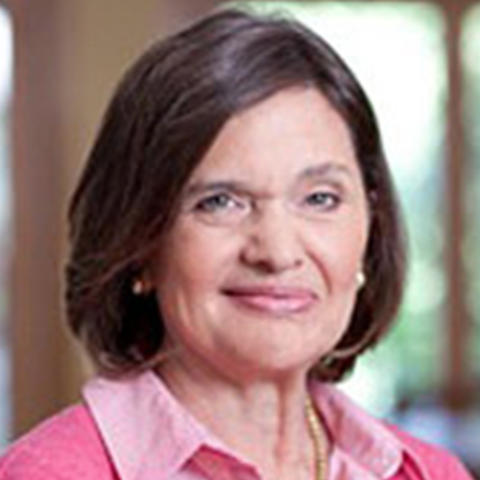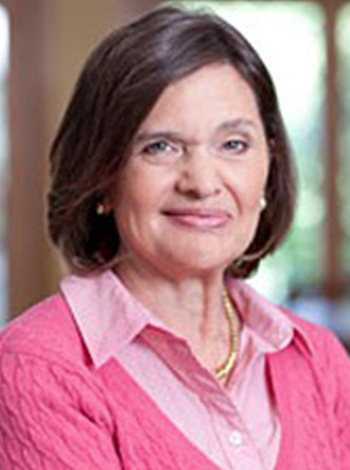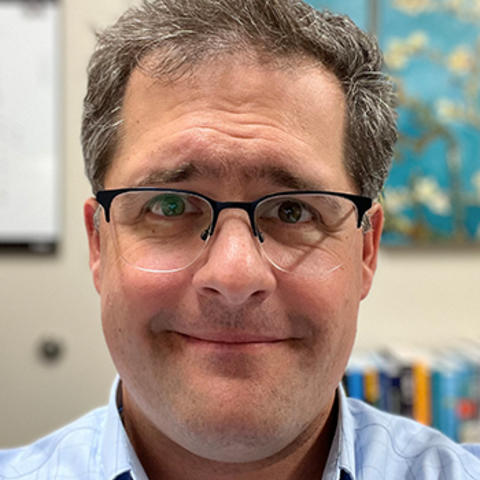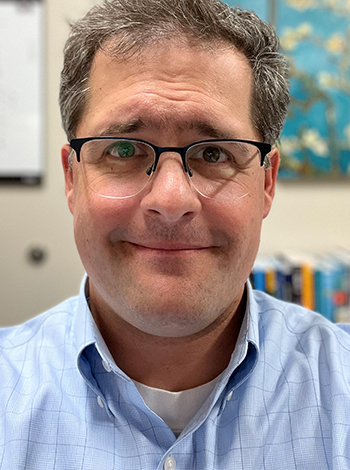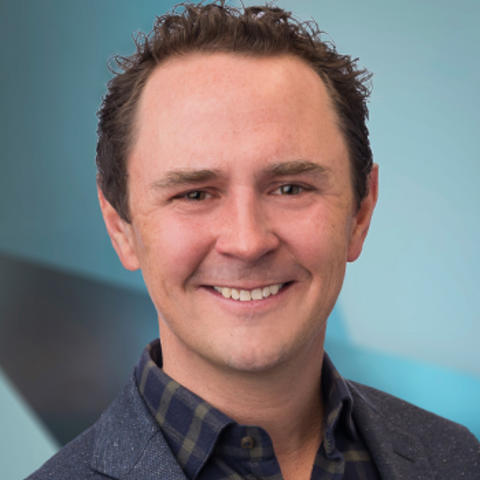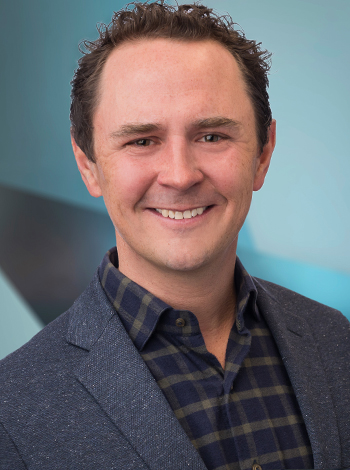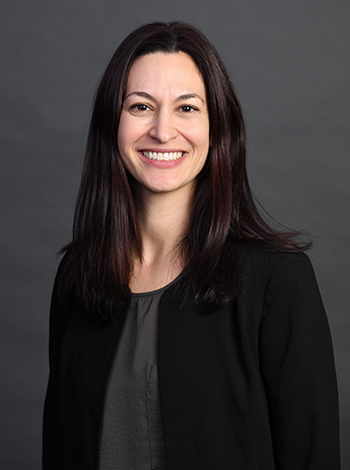Faculty

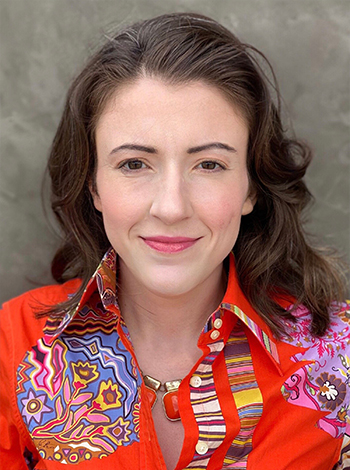
Bio
Jacquetta Blacker, MD, MA, joined UMN following several years working for the Mayo Clinic and Mayo Clinic Health System. A native of the United Kingdom, she earned her BMBCh (the equivalent of an MD) in medicine and surgery, and her Master of Arts and undergraduate degree in Physiological Sciences at Oxford University. Dr. Blacker completed her general psychiatric residency and a child and adolescent psychiatry (CAP) Fellowship at the Mayo Clinic in Rochester, and she is board certified in both adult and child and adolescent psychiatry.
Being at the University enables Dr Blacker to teach and she is currently the program director of UMN’s CAP fellowship. She also works with the neuromodulation team and consults with adults and children at the UMMC campus. She has a long-standing enjoyment of public speaking, and lectures and holds teaching seminars on a huge range of topics. She enjoys collaborating with colleagues on research projects, especially those related to bipolar and anxiety disorders, and her passion is medical history.
Expertise
- PTSD
Administrative Assistant
(for academic support only)
Molly Jokimaki
jokim004@umn.edu
In the Media
- 2022: Featured in this article titled, "Child and Adolescent Psychiatry Fellowship making meaningful changes to improve the fellows’ experience".
Research Summary
Dr. Blacker's research interests include mood and anxiety disorders in medical-surgical populations, and suicide among medical professionals. Being part of a much larger institution that has many disciplines – and the opportunities that creates for doing cross-disciplinary work – is exciting to Blacker. "A lot of what I do is historical, looking at trends over time, how concepts have changed, how treatment has changed," she said. "Having access to specialists in history and statistics will really help move my research along." Dr. Blacker was co-investigator for three research grants, one looking at developing biomarkers that would lead to individualized treatments in bipolar patients with and without comorbid addiction; another used EEG to identify potential markers of suicidal behaviors in children between age 13-18; another examined biochemical and genetic differences in mood disorders.
Education
Fellowships, Residencies, and Visiting Engagements
Licensures and Certifications
Professional Memberships
Selected Publications
Selected Presentations
Contact
Address
Department of Psychiatry & Behavioral Sciences, F282/2A West Building, 2450 Riverside Avenue South, Minneapolis, MN 55454
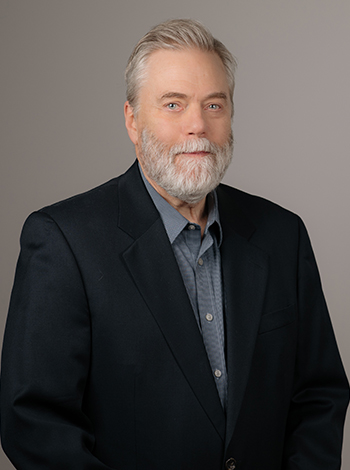
Bio
I am a professor and a clinical psychologist with extensive experience as a service provider, supervisor, and researcher in mental health. My education included receiving a BA in child psychology here at the University of Minnesota and a PhD in clinical psychology from the Illinois Institute of Technology. I also completed a clinical psychology internship at Duke University Medical Center.
My current clinical practice is providing outpatient diagnostic assessments and psychotherapy for adults with ADHD, depression, anxiety, trauma, and stress. I use a strengths-based, whole-person mental health and wellbeing-focused approach to psychotherapy that incorporates best practices from cognitive behavioral therapy, acceptance and commitment therapy, positive psychology, mindfulness, habit formation psychology, and motivational interviewing.
My work also emphasizes developing, implementing, and evaluating innovative mental health programs utilizing an implementation science approach. For many years this work focused on school, community, and clinical programming for youth, but in recent years my focus has been on clinical programming for adults. To this end, I am concurrently a clinical scientist for Portages Health where I guide the development, implementation, and evaluation of measurement-based and evidence-based behavioral health models that are supported by digital technologies and applied in real-world practice settings.
I have published peer-reviewed journal articles with many as either first or last author, and written several books about youth mental health, effective intervention methods, and evidence-based practice.
Expertise
- Prevention and early intervention in children and adolescents experiencing behavior and mood disorders
- Evidence-based practice
- Digital mental health intervention
Administrative Assistant
(for academic support only)
Natasha Hampton-Anderson
nhampton@umn.edu
Research Summary
Dr. Bloomquist has accumulated many years of research experience in collaboration with a team of prevention and intervention scientists. This included (1) evaluating the short- and long-term effects of school/community/clinic-based interventions for children with behavior and emotional disorders, (2) examining predictive variables and facilitative strategies related to parents engaging in prevention programming, (3) delineating and studying methods for enhancing and measuring program implementation in real world settings, (4) examining mediators and moderators of response to prevention programming, and (5) delineating child and parenting characteristics related to behavior disorders in children. His current research is examining youth and family stress associated with adolescent depression and translating and evaluating evidence-based mental health programming for use in real world health settings.
Clinical Summary
Dr. Bloomquist provides program consultation for intensive outpatient programming services for adolescent depression. He specializes in parent and family skills training (a.k.a. behavioral family therapy) for youth with behavior-emotional problems. As an author/co-author of several books, Dr. Bloomquist has written about effective intervention methods and evidence-based practice.
Education
Fellowships, Residencies, and Visiting Engagements
Licensures and Certifications
Professional Memberships
Selected Publications
Selected Presentations
Contact
Address
Department of Psychiatry & Behavioral Sciences, F282/2A West Building, 2450 Riverside Avenue South, Minneapolis, MN 55454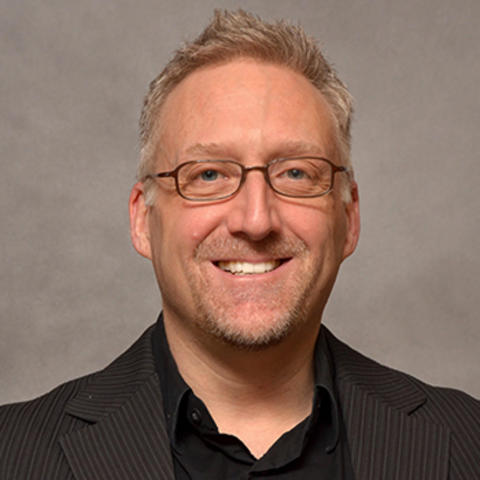
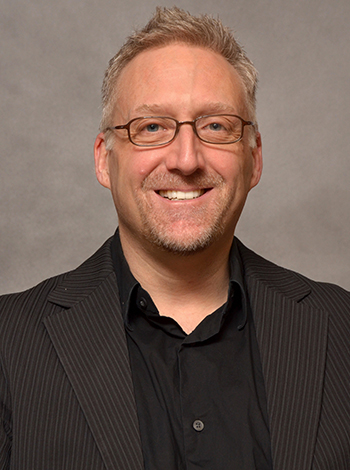
Bio
I completed my BSc (First Class), MD, and Residency in Psychiatry at Memorial University of Newfoundland in St. John's, Canada. I was a Clinical Instructor (from 2004-2007) and Assistant Clinical Professor (from 2007-2013) at the University of British Columbia Mood Disorders Center in Vancouver, Canada. While at UBC, I also completed a PhD in Neuroscience. My PhD research involved using magnetic resonance brain imaging to investigate the relationship between obesity and brain illness progression in early-stage bipolar disorder. I joined the University of Minnesota Department of Psychiatry & Behavioral Sciences as an Associate Professor in 2014.For the past 16 years, I have taught medical students, psychiatry residents, PhD students, and research fellows about the neurobiology, diagnosis, and treatment of bipolar disorder and associated conditions. My work focuses on the diagnosis and management of bipolar disorder, especially bipolar depression; early intervention in mood disorders; cardiovascular risk factors as predictors of neuroprogression in bipolar disorder, and the causal modelling of symptom networks in bipolar disorder.I have co-authored a number of treatment guidelines for bipolar disorder. I have published 77 peer-reviewed articles with most as first or last author, have close to 4000 citations, and an h-index of 28. I have delivered presentations both nationally and internationally at over 120 conferences.Within the department, I am a member of the Grand Rounds Committee . I am also a member of the UMP Compliance and Risk Management Committee , and the Strategic Planning Committee .
Research Summary
Dr. Bond's research interests include: Genetics of bipolar disorder (BD) Diagnostic tests for BD The relationship between body health and brain health in people with BD Cognitive functioning in BD The optimal use of medications in BD
Clinical Summary
Dr. Bond's clinical interests include the treatment of bipolar depression and the diagnosis and treatment of additional psychiatric conditions in people with bipolar disorder (e.g. anxiety disorders, attention deficit disorder). He has also co-authored a number of treatment guidelines for bipolar disorder.
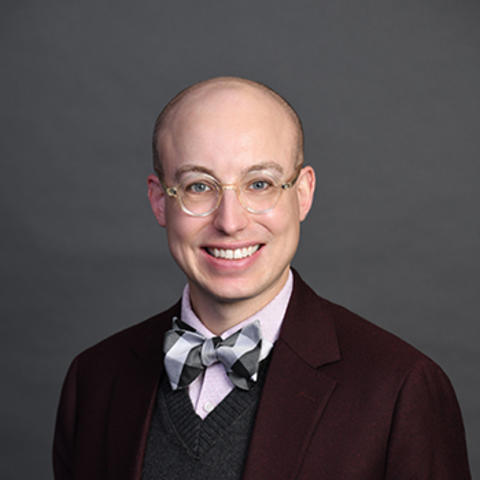
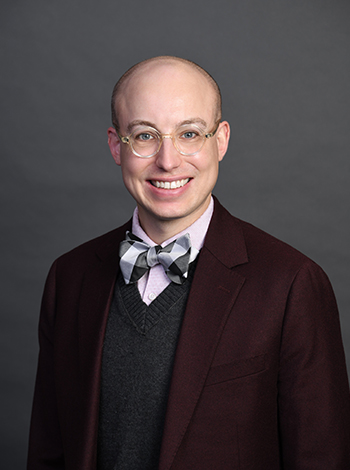
Bio
I received my BA in Biochemistry from Saint Mary’s University of Minnesota, Winona, MN. I received my medical degree here at the University of Minnesota, where I further completed my psychiatry residency and my fellowship in child & adolescent psychiatry where I was chief fellow.
I am a child psychiatrist with a focus on the treatment of children and adolescents with mood and anxiety disorders and the education of medical trainees. I am also excited to continue working with the child and adolescent psychiatry fellows through my role as associate program director of the fellowship program.
Within the university, I am a member of the Fellowship Recruitment Committee, the Outpatient Fellow Clinic Leadership Team, the Special Review Committee and the Operations Committee.
Expertise
- Child and adolescent anxiety and mood disorders
Administrative Assistant
(for academic support only)
Teneshia Collins
coll1148@umn.edu
In the Media
- 2022: Featured in this article titled, "New child & adolescent psychiatry faculty member enjoys his “kitchen sink” practice".
- 2022: Featured in this article titled, "Child and Adolescent Psychiatry Fellowship making meaningful changes to improve the fellows’ experience".
Education
Fellowships, Residencies, and Visiting Engagements
Licensures and Certifications
Honors and Recognition
Professional Memberships
Selected Publications
Selected Presentations
Contact
Address
Masonic Institute for the Developing Brain, 2025 E River Pkwy, Minneapolis, MN 55414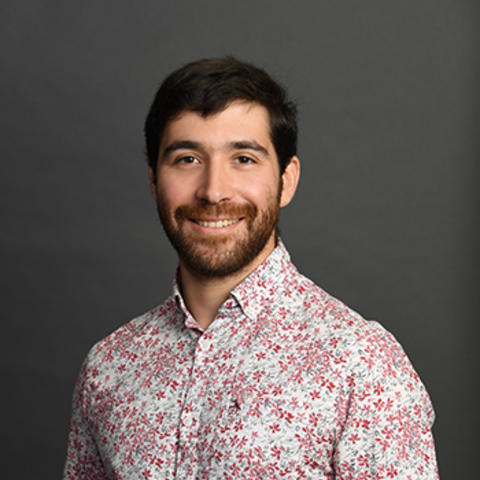
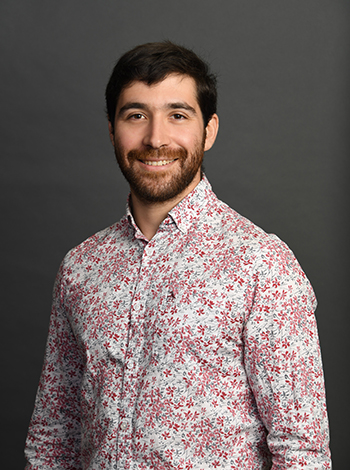
Bio
I am an Assistant Professor with a joint appointment in the Department of Psychiatry & Behavioral Sciences and in the Institute for Health Informatics (IHI). I received my PhD from Yale University and my BS in psychology (with honors) from Washington and Lee University. Prior to joining the department, I was a postdoctoral associate in the CoTipp (Cognitive Training, Imaging, and Precision Psychiatry) Lab led by Department Head Sophia Vinogradov, MD.
My research aims to better specify cognitive pathways that lead to and maintain discrepancies between beliefs and reality. I use data science methods to examine how these pathways operate in the context of specific symptoms – like delusions and suicide ideation – that transcend diagnostic categories, preventative health behaviors like vaccination, and information environments containing conspiracy theories and “fake news.”
Administrative Assistant
(for academic support only)
Shelly Slominski
slomi001@umn.edu
In the Media
- 2022: Contributed to an article from Psychology Today titled, "Do our Interpretations Influence our Desire to Live?"
Education
Selected Publications
Contact
Address
Department of Psychiatry & Behavioral Sciences, F282/2A West Building, 2450 Riverside Avenue South, Minneapolis, MN 55454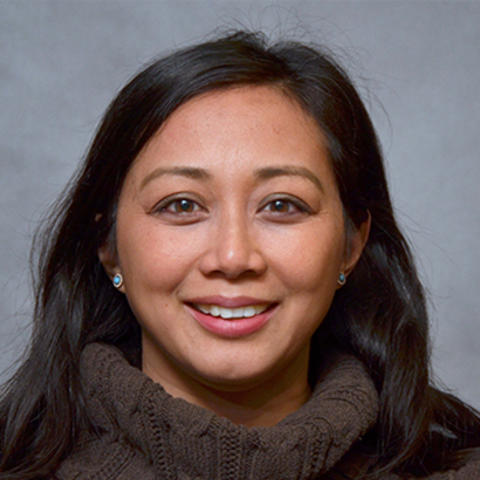
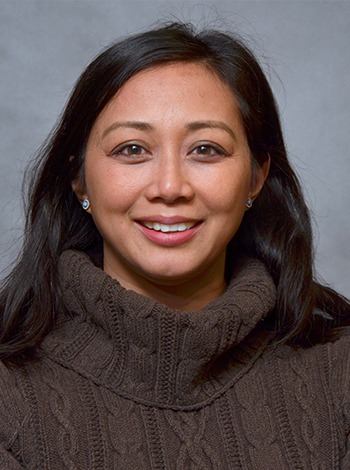
Bio
I hold a Ph.D. in Cognitive Neuroscience in Psychology from the University of Georgia. My objective is to implement effective clinical and non-invasive interventions to support recovery from substance use disorder. I have published neuroimaging findings on the neural progression of recovery in addiction, focusing on the association between brain functional organization and treatment outcomes.
Expanding on my initial neuroimaging findings, I am now focused on integrating cognitive training programs with non-invasive brain stimulation techniques such as transcranial direct current stimulation (tDCS) to develop biologically-based interventions for substance use disorder. Notably, my research includes the first study demonstrating that tDCS administered during early abstinence in alcohol use disorder increases engagement of brain networks supporting abstinence and reduces future relapse rates.
Continuing my efforts, I am conducting clinical trials utilizing this innovative non-invasive neurostimulation intervention, laying the groundwork for the clinical application of a cost-effective, scalable, neuroscience-based treatment for addiction.
Administrative Assistant
(for academic support only)
Shelly Slominski
slomi001@umn.edu
Clinical Summary
Addiction; Schizophrenia
Education
Honors and Recognition
Professional Memberships
Selected Publications
Selected Presentations
Contact
Address
Department of Psychiatry & Behavioral Sciences, F282/2A West Building, 2450 Riverside Avenue South, Minneapolis, MN 55454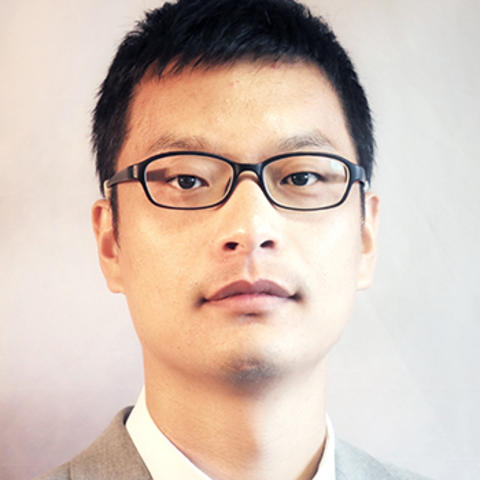
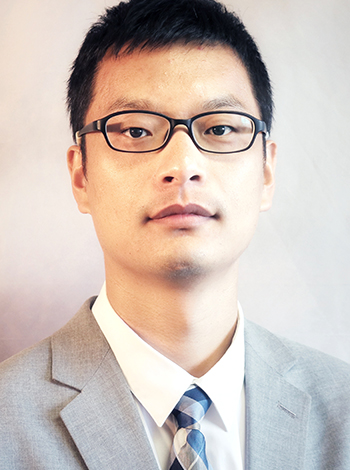
Bio
Dr. Mo Chen is the Neuroscience Research Program Lead and a Senior Clinical Scientist of the Research Department at Gillette Children’s. He also serves as the technical consultant to the Non-invasive Neuromodulation Laboratory at the University of Minnesota. He obtained his B.S and Ph.D. degrees in Biomedical Engineering from Zhejiang University and finished Postdoctoral research training in the Brain Plasticity Laboratory at the University of Minnesota. Before working at Gillette, he was the Manager of the Non-invasive Neuromodulation Laboratory and a research scientist in the Department of Psychiatry at the University of Minnesota. His research interests are 1. investigating the mechanism and effectiveness of non-invasive neuromodulation techniques, including transcranial magnetic stimulation (TMS), repetitive TMS (rTMS), transcranial current stimulation (tDCS, tACS, tRNS, tPCS), paired associative stimulation (PAS).. etc. 2. Combining neuroimaging (functional magnetic resonance image, fMRI, resting-state fMRI and diffusion tensor imaging, DTI) and neuromodulation techniques to investigate pathophysiology of neurological and psychiatric conditions, e.g. Focal Dystonia, Spasmodic Dysphonia and Stroke. 3. Using neuromodulation techniques as a treatment to neurological or psychiatric conditions, e.g. cerebral palsy and spinal cord injury.
Contact
Address
717 Delaware St. SEMinneapolis, MN 55455
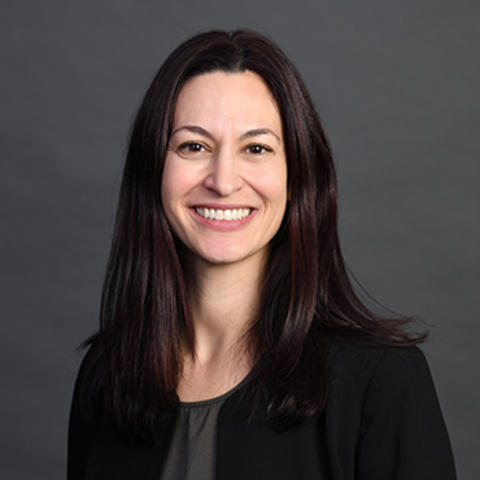
Bio
I received my BA in psychology from the University of Nevada, Reno, and went on to earn a Ph.D. in Clinical Psychology from the University of Wisconsin-Milwaukee in 2010. I completed a pre-doctoral internship and post-doctoral fellowship in child mental health at the Alpert Medical School of Brown University. My training and career development have been supported by T32, F32, and K23 awards from the National Institute of Mental Health (NIMH). Prior to joining the Department of Psychiatry & Behavioral Sciences faculty, I was an Assistant Professor (Research) at Brown Medical School and a Psychologist at Rhode Island Hospital and Bradley Hospital.
I am a clinical psychologist with research and clinical expertise in the area of neurodevelopmental disorders, with an emphasis on Tourette Syndrome/tic disorders, obsessive-compulsive spectrum disorders, and anxiety disorders. I am the Co-Director of the Converging Approaches to Neurodevelopment (CAN) Lab, a research group that focuses on studying the causes and treatment of neurodevelopmental disorders. Our research integrates behavioral and neuroscience methods, including neuromodulation, brain imaging, and video-based symptom quantification. My current major projects include clinical trials to identify mechanisms of cognitive behavioral therapy (CBT) response and to test augmentation of CBT with non-invasive neuromodulation. I also collaborate with faculty in the Department of Computer Science and Engineering to use computer vision approaches to quantify atypical movements associated with neurodevelopmental and psychiatric disorders.
Within the university, I am the Director of the Novel Interventions & Neuromodulation Core at the Masonic Institute for the Developing Brain (MIDB). In this role, I oversee the MIDB Non-Invasive Neuromodulation Lab and support MIDB investigators conducting cutting-edge interventions research focused on critical neurodevelopmental periods.
Expertise
- Neurodevelopmental disorders
- Tourette syndrome
- Obsessive-compulsive disorders
- Anxiety disorders
Administrative Assistant
(for academic support only)
Shelly Slominski
slomi001@umn.edu
In the Media
- 2023: Featured in this article titled, “NIH grant supporting U of M research that could result in a quantifiable way to diagnose Tourette syndrome.”
- 2023: Quoted in this article posted by Fatherly titled, “If You’re Trying To Raise A ‘Happy Child,’ You’re Missing The Point.”
- 2023: Featured in this article in the U’s Discovery magazine titled, “Heads Together,” about their collaboration to help kids with neurodevelopmental disorders
- 2022: Featured in video titled "Tackling Psychiatric Illness Using Translational Models and Computations", shot as part of the American Psychiatric Association's Conference TV with funding from NeuroPRSMH (NeuroPlasticity Research in Support of Mental Health), the U’s multidisciplinary neuroscience research group
- 2021: Featured in this interview titled, "Tik Tok may be influencing tic disorders in children".
- 2020: One of many physicians featured in the Minneapolis StarTribune who participated in protests against police killing Black men on April 17 (seen holding the “Policing is a Public Health Crisis" sign)
Research Summary
Dr. Conelea's research focuses on the etiology and treatment of Tourette Syndrome and other tic disorders, Obsessive Compulsive Disorder (OCD), and anxiety disorders. She is particularly interested in understanding how the brain, environment, and psychosocial factors interact to impact symptoms and treatment outcome. Dr. Conelea's research integrates behavioral and neuroscience methods, including neuromodulation and brain imaging. Additional interests include therapeutic process and mechanism of change in cognitive-behavioral therapy.
Teaching Summary
Dr. Conelea provides training and supervision for clinical psychology and psychiatry students, residents, and fellows in the University of Minnesota Medical School.
Clinical Summary
Dr. Conelea's clinical interests include Tourette Syndrome; tic disorders; Obsessive Compulsive Disorder; anxiety disorders; and cognitive-behavioral therapy.
